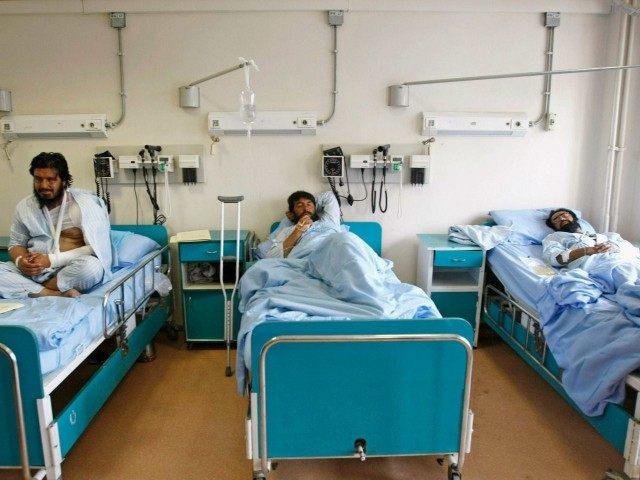WASHINGTON, D.C.—The U.S. Agency for International Development (USAID) provided inaccurate location data for nearly two dozen health facilities in the western Afghan province of Herat, placing the hospitals at risk of suffering the same deadly fate as the Doctors Without Borders medical center, a watchdog agency appointed by Congress found.
John Sopko, the Special Inspector General for Afghanistan Reconstruction (SIGAR), found “substantial inaccuracies” in the GPS coordinates USAID provided for 23 of the 63 healthcare facilities it maintains in Herat.
“The recent destruction of the Doctors Without Borders hospital in a battle with the Taliban in Kunduz dramatizes the importance of having accurate GPS coordinates for healthcare facilities,” notes Sopko in an Oct. 20 letter to USAID, referring to the accidental U.S. military bombing of a health center in Afghanistan that killed at least 30 doctors and patients on Oct. 3.
Site inspections conducted by SIGAR revealed that the location of the 23 facilities were up to 6 miles from the GPS coordinates provided by USAID—seven were more than three miles from the coordinates and 16 that were located less than three miles from the provided location data.
Of the remaining 40 USAID-supported medical centers in Herat, SIGAR could only determine that 19 actually existed.
“USAID’s $259.6 million Partnership Contracts for Health (PCH) program began in July 2008 and ended in June 2015. The program provided funding for approximately 600 health facilities in Afghan provinces, including 63 in Herat province,” explains Sopko in the letter. “As you know, a key component of the PCH program in Herat was the use of detailed geospatial location information—in the form of global positioning system [GPS] coordinates—to ensure health facilities were in the appropriate locations and providing the local population with needed health services.”
“Immediately following the conclusion of the PCH program, USAID began providing funding to support the same health facilities through the World Bank-administered System Enhancement for Health Action in Transition (SEHAT) program which is scheduled to run through June 2018,” it adds.
SIGAR site inspections also discovered that at least 16 facilities disposed of medical waste in open-air kins, potentially exposing the public to the toxic material.
“This method of unsecured disposal does not adhere to best practices and raises the risk that patients seeking treatment—or children we observed playing outside at several facilities—could be accidentally exposed to contaminated waste,” declares Sopko.
“Inadequate or sporadic access to electricity, water, or needed pharmaceuticals at several locations raises concerns that USAID is paying for services that the implementing partner is not providing,” concluded SIGAR. “We encourage USAID to take action to ensure that all of the health facilities it supports in Herat are operating with the utilities and pharmaceutical stores necessary to provide the intended level of health services to the target population.”

COMMENTS
Please let us know if you're having issues with commenting.